Top 250 Movies Like Junjo Kirari
A list of the best movies similar to Junjo Kirari. If you liked Junjo Kirari then you may also like: Young Man with a Horn, Wolf Blood, Naughty Baby, New York, New York, Night World and many more great movies featured on this list.
The 74th NHK Asadora Drama is Junjo Kirari, which means something along the lines of "pure-hearted Kirari." The story is set in Okazaki City, Aichi Prefecture in the era around the Second World War. When the story opens in 1928, the heroine, Sakurako, is a very active seven-year-old girl. Indeed, even in the first episode she exhibits her confidence and enthusiasm. But above all else, Sakurako is interested in becoming a jazz pianist, and music features extensively in the plot.
Junjo Kirari
Wolf Blood
Dick Bannister is the new field boss of the Ford Logging Company, a Canadian logging-crew during a time when conflicts with the powerful Consolidated Lumber Company, a bitter rival company, have turned bloody, like a private war. His boss, Miss Edith Ford, comes to inspect the lumberjack camp, bringing her doctor fiancé with her. Dick is attacked by his rivals and left for dead. His loss of blood is so great that he needs a transfusion, but no human will volunteer, so the surgeon uses a wolf as a source of the blood. Afterwards, Dick begins having dreams where he runs with a pack of phantom wolves, and the rival loggers get killed by wolves. Soon, these facts have spread through the camp. (via YouTube)
Naughty Baby
A cloak room girl (Alice White) falls for a rich boy who may not actually be rich.
New York, New York
An egotistical saxophone player and a young singer meet on V-J Day and embark upon a strained and rocky romance, even as their careers begin a long uphill climb.
Night World
"Happy" MacDonald and his unfaithful wife own a Prohibition era night club. On this eventful night, he is threatened by bootleggers, and the club's star dancer falls in love with a young socialite who drinks to forget a personal tragedy, among other incidents.
Orchids and Ermine
Set in New York City, flapper Pink Watson works a telephone operator at a cement factory who dreams of marrying rich. Her constant daydreaming of wealth annoys her fellow workers, and ruins the heart of one of her worshiping colleagues.
Outcast
Outcast is a 1928 silent film drama produced and distributed by First National Pictures. It was directed by William A. Seiter and stars Corinne Griffith, often considered one of the most beautiful women in film. This story had been filmed in 1917 as The World and the Woman with Jeanne Eagels. In 1922 a Paramount film of the same name with Elsie Ferguson reprising her stage role was released. Both films were based on a 1914 play, Outcast, by Hubert Henry Davies which starred Ferguson. The Seiter/Griffith film was an all silent with Vitaphone music and sound effects. In the sound era, the story was filmed once again as The Girl from 10th Avenue starring Bette Davis.
Road House
Larry Grayson, jazz age son of permissive parents, drifts from wild parties with his classmates to more heady, roadhouse entertainment. There he becomes involved with an underworld gang and falls in love with Spanish Marla, one of their vamps. Larry leaves home after an argument with his father, throws in with the gang (who are using him for their own purposes), and is blamed for a murder. Tried and convicted, Larry is given a light sentence when the judge places most of the blame on his overindulgent parents.
Jammin' the Blues
In this short film, prominent jazz musicians of the 1940s gather for a rare filming of a jam session. This highly stylized chronicle features tenor sax legend Lester Young.
Jazz is my Native Language: A Portrait of Toshiko Akiyoshi
Jazz is my Native Language: A Portrait of Toshiko Akiyoshi is a 1983 documentary film by Renee Cho about the jazz pianist, composer, arranger and big band leader Toshiko Akiyoshi.
The Jazz Singer
A young Jewish man is torn between tradition and individuality when his old-fashioned family objects to his career as a jazz singer. This is the first full length feature film to use synchronized sound, and is the original film musical.
The Jazz Singer
As Jerry Golding scales the heights of show business, he breaks the heart of his father, who'd hoped that Jerry would follow in his footsteps. Sorrowfully, Cantor Golding reads the Kaddish service, indicating that, so far as he is concerned, his son is dead. A tearful reconciliation occurs when Jerry dutifully returns to sing the "Kol Nidre" in his ailing father's absence.
Alexander's Ragtime Band
Classical violinist, Roger Grant disappoints his family and teacher when he organizes a jazz band, but he and the band become successful. Roger falls in love with the band's singer, Stella, but his reluctance to lose her leads him to thwart her efforts to become a solo star. When the World War separates them in 1917, Stella marries Roger's best friend and, when Roger returns home after the war, an important concert at Carnegie Hall brings the corners of the romantic triangle together.
All Night Long
Over the course of one eventful evening, the anniversary celebration of the musical and romantic partners Aurelius Rex and Delia Lane, a jealous, ambitious drummer, Johnny Cousin, attempts to tear the interracial couple apart.
The Battle of the Sexes
Gum-chewing frizzy-haired golddigger Marie Skinner cooks up a scheme with her lover Babe Winsor, a jazz hound, to fleece a portly middle-aged real estate tycoon, William Judson. Marie moves into Judson's apartment building and contrives to meet and seduce him, plying him with compliments, music, swoons, décolletage, and batted eyes. When his loyal wife (and their two children) see him out catting with Marie at a night club, mom's devastated and confronts him. He moves out. Babe wants Marie to sell Judson worthless bonds. Will mom commit suicide? Will sis shoot the floozy? Will pops figure out he's being a fool?
Blue Skies
Jed Potter looks back on a love triangle conducted over the course of years and between musical numbers. Dancer Jed loves showgirl Mary, who loves compulsive nightclub-opener Johnny, who can't stay committed to anything in life for very long.
Carnegie Hall
A young Irishwoman comes to the United States to live and work with her mother as a cleaning lady at Carnegie Hall. She becomes attached to the place as the people she meets there gradually shape her life. The film also includes a variety of performances from some of the foremost musical artists of the times: conductors Bruno Walter & Leopold Stokowski, solists Arthur Rubinstein & Jascha Haifetz, singers Lily Pons & Jan Peerce and bandleader Vaughn Monroe among many others.
The Cat and the Moon
Nick comes to New York to temporarily live with a jazz musician friend of his late father's named Cal while his mom is in rehab. During his time in the city, he befriends a group of kids who show him what New York has to offer.
The Cool World
A fifteen-year-old boy wants to buy a gun from an adult racketeer named Priest, in order to become president of the gang to which he belongs, and to return them to active "bopping" (gang fighting) which has declined in Harlem.
Soul
Joe Gardner is a middle school teacher with a love for jazz music. After a successful audition at the Half Note Club, he suddenly gets into an accident that separates his soul from his body and is transported to the You Seminar, a center in which souls develop and gain passions before being transported to a newborn child. Joe must enlist help from the other souls-in-training, like 22, a soul who has spent eons in the You Seminar, in order to get back to Earth.
Some Like It Hot
Nicky Nelson is a fast-talking sideshow barker with a wax-and-alive concession on Atlantic City's boardwalk. Even with the band of his friend, struggling musician Gene Krupa, playing on the sidewalk to attract the customers, "The Living Corpse" and other low-rent acts aren't enough to lure the seen-it-all boardwalk strollers, and the landlord closes the show in lieu of never-paid rent. Nicky, always promoting, goes to Stephen Hanratty, head of the pier's Dance Pavilion, to plug Krupa's band as an attraction, but Hanratty won't even listen to them. But, while there, he meets singer Lily Racquel, who knows he is a phoney but might have the ability to to talk a radio-station manager into giving her an audition. She gives him a ring to help finance the project; he promptly loses it in a crap-game.
The Eddy Duchin Story
The life story of the famous pianist and band-leader of the 1930s and 1940s.
The Five Pennies
Dixieland cornetist Red Nichols runs into opposition to his sound, but breaks through to success. He marries a warm, patient woman and even finds time to raise a family. Then tragedy strikes when their daughter contracts polio.
Follow the Boys
During World War II, all the studios put out "all-star" vehicles which featured virtually every star on the lot--often playing themselves--in musical numbers and comedy skits, and were meant as morale-boosters to both the troops overseas and the civilians at home. This was Universal Pictures' effort. It features everyone from Donald O'Connor to the Andrews Sisters to Orson Welles to W.C. Fields to George Raft to Marlene Dietrich, and dozens of other Universal players.
Glorifying the American Girl
A young woman, who wants to be in the Follies, is making ends meet by working at a department store's sheet music department, where she sings the latest hits. She is accompanied on piano by her childhood boyfriend, who is in love with her, despite her single-minded interest in her career. When a vaudeville performer asks her to join him as his new partner, she sees it as an opportunity to make her dream come true. Upon arriving in New York City, our heroine finds out that her new partner is only interested in sleeping with her and makes this a condition of making her a star. Soon, however, she is discovered by a representative of Ziegfeld.
Glorious Betsy
Vitaphone production reels #2471-2478; third Warner Bros. feature film - the first being The Jazz Singer and the second Tenderloin - to include talking sequences, along with the by now usual Vitaphone musical score and sound effects. A copy of this film survives at the Library of Congress in Washington, D.C., but the sound disks are lost.
Godzilla 2000: Millennium
An independent group of researchers called the Godzilla Prediction Network (GPN) actively track Godzilla as he makes landfall in Nemuro. Matters are further complicated when a giant meteor is discovered in the Ibaragi Prefecture. The mysterious rock begins to levitate as it's true intentions for the world and Godzilla are revealed.
Gold Diggers of 1933
Things get tough for Carol and her showgirl pals, Trixie and Polly, when the Great Depression kicks in and all the Broadway shows close down. Wealthy songwriter Brad saves the day by funding a new Depression-themed musical for the girls to star in, but when his stuffy high-society brother finds out and threatens to disown Brad, Carol and her gold-digging friends scheme to keep the show going, hooking a couple of millionaires along the way.
Lady Sings the Blues
Chronicles the rise and fall of legendary blues singer Billie Holiday. Her late childhood, stint as a prostitute, early tours, marriages and drug addiction are featured.
I Love a Bandleader
A painter suffering from amnesia convinces himself that he's a famous bandleader and finds romance with a pretty singer. Comedy with music.
Win That Girl
A gridiron rivalry between two colleges is entering its third generation, and the Norton family (father and grandfather were members of teams defeated by rival squads captained by members of the Brawn family) rears Johnny Norton, 3d, to be a star football player. The lad is underweight, however, and initially shows a talent only for drop kicking. During the big game, Johnny is substituted for another player and leads his team to victory, winning for himself the love of Gloria Havens.
The Little Wildcat
A pair of elderly Civil War veterans, Judge Holt and his friend Joel Ketchum, spent most of their time reminiscing about their wartime experiences. In the meantime, Holt's granddaughter falls in love with a devil-may-care aviator. The only problem is that Holt hates aviators and will do whatever he can to break up the romance.
I Love to Singa
I Love to Singa depicts the story of a young owl who wants to sing jazz, instead of the classical music that his German parents wish him to perform. The plot is a lighthearted tribute to Al Jolson's film The Jazz Singer.
Imagine the Sound
An examination, shown through both interviews and performances, of the avant-garde free jazz movement which reigned during the 1960s.
The In Crowd
A young man of the rock and roll generation is in his senior year of high school. When one day he successfully gets on a popular teen dance television show he becomes a star. The plot follows him as he lives his new life in his new world. What he finds are adoring fans, jealous rivals, bitter friends left behind, and the girl of his dreams...his dance partner.
Is Everybody Happy?
It is the story of Ted Lewis, popular band leader and clarinettist. The music for the film was written by Harry Akst and Grant Clarke, except for "St. Louis Blues" by W. C. Handy and "Tiger Rag". The film's title comes from Lewis's catchphrase "Is everybody happy?" The film's soundtrack exists on Vitaphone discs preserved at the UCLA Film and Television Archive, but the film itself is considered a lost film, according to the Vitaphone Project website. A five minute clip from the film can be found on YouTube.
It Happened in Brooklyn
Danny has been in the army for 4 years, yet all he thinks about is Brooklyn and how great it is. When he returns after the war, he soon finds that Brooklyn is not so nice after all. He is able to share a place with Nick, the janitor of his old High School, and get a job as a singer in a music store. He also meets Leo, a talented pianist and his teacher Anne, whose dream is to singing Opera. When Jamie arrives from England, Danny tries to show him the Brooklyn experience and help him compose modern swing music. Together, these four also try to help Leo get the Brooklyn Music scholarship.
The Life and Death of 9413, a Hollywood Extra
This short experimental film tells the story of a man who comes to Hollywood to become a star, only to fail and be dehumanized. He is identified by the number 9413 written on his forehead.
Lights of New York
Eddie is conned into fronting a speakeasy for a local gangster who intends to frame him for the murder of a cop.
Mammy
Mammy features Al Jolson as the star of a travelling minstrel show, appearing in a small Southern town. Jolson falls in love with an actress in the troupe (Lois Moran), but she loves another. One of Jolson's fellow minstrels (Lowell Sherman) is shot backstage, and it is assumed thanks to several plot convolutions that Jolson is guilty of the deed.
The Pianist
Jean and her sister, played by Macha Grenon, have a life long infatuation with the Japanese Pianist who once lived across the street from them during their high school years. The film is set during the family's reunion on Vancouver Island and flashes back and forth over the last 10 years. By coincidence, Yoshi who is now a world famous Pianist is giving a concert in Vancouver and Amy is anxious to see him again but her sister curiously is not at all interested. The girls explore old passions, stalking, sibling rivalry and wrong life choice based on the fantasies of their youth.
The Power of the Press
The naive newspaper cub Clem lands a scoop when he's sent out to cover a murder. In his enthusiasm he writes that the main suspect is Jane. When she confronts Clem, she convinces him to help her prove her innocence.
Take Me Home
Chorus girl Peggy Lane, finds a small part in a new show for David North, a stages-truck country boy. At rehearsal, David meets Delerys Devore, the show's star, and she quickly offers him a larger part in her act. Quite taken with David, Delerys invites him to her home on the pretext that Peggy will be there; when Peggy does not show up, David leaves, infuriating his hostess. Derelys has Peggy fired the next day, and in reprisal Peggy goads her into a Carmenesque fight backstage just before the show. Derelys is unable to go on stage, and Peggy takes her place, becoming the hit of the show. Peggy and David are later married and give up show business, finding contentment living on a farm.
Too Late Blues
Ghost is an ideological musician and leader of a jazz band who would rather play his blues in the park to the birds than compromise himself. His peripatetic performances lead him to cross paths with a singer, while his masculinity is thrown into question following a violent brawl.
Me, Gangster
Told in the form of a diary, the story details the rise and fall of gangster boss Jimmy Williams.
Three Hearts for Julia
When his wife threatens him with divorce, a reporter courts her again.
Ding Dong Williams
Ding Dong Williams, a clarinet player who can neither read nor write music is employed at a motion picture studio. The studio plans to use him and his six-piece band but his musical deficiencies are discovered and the plan scrapped. But the secretary of the head of the music department intercedes on his behalf and he is given a chance in the film.
Beware of Married Men
A press sheet printed in Exhibitors Herald and Moving Picture World in 1928 put forth the suggestion that “people in the need of a good hearty laugh should take this opportunity of getting it” by seeing a newly released comedy by Warner Bros., suggestively entitled Beware of Married Men. Since director Archie Mayo (The Petrified Forest) helmed this feature during the dying days of the silent era, the studio sought to enhance its commercial viability by embellishing the shot-silent picture with a synchronized music and effects soundtrack using the Vitaphone sound-on-disc system. Ultimately, these efforts went for naught, as the picture failed at the box office and quickly disappeared from theaters.
What Happened, Miss Simone?
The film chronicles Nina Simone's journey from child piano prodigy to iconic musician and passionate activist, told in her own words.
The Matinee Idol
The famous matinee idol and blackface comedian, Don Wilson, heads out of town to escape adulation. There, calling himself Harry Mann, he accidentally joins a traveling acting troupe, and falls in love with Ginger Bolivar, who runs the troupe and stars in their Civil War melodrama. Don's producer sees the play, and thinks it's a comic masterpiece, and just what Don's Broadway show needs. But when Ginger finds out she's been played for a fool, will she forgive Don?
Hands of a Stranger
A concert pianist loses his hands in a car crash, but a surgeon gives him new ones. The experimental medical procedure goes awry when the new hands drive the pianist mad.
Thelonious Monk: Straight, No Chaser
A documentary film about the life of pianist and jazz great Thelonious Monk. Features live performances by Monk and his band, and interviews with friends and family about the offbeat genius.
The Revolving Doors
A quiet painter, separated from his wife for a year, receives a suitcase in the mail from his mother, whom he hasn't seen since infancy. He believes she abandoned him to his wealthy, paternal grandparents. The suitcase contains mementos and a diary, a long letter to him, written over the years, with details of her youth, her first job as a pianist at a cinema, the coming of talkies, her marriage, and how he came to live with his grandparents. As he reads through the materials and her story comes to life, his son Antoine, who's about 10 or 12, tries to break through his father's silence and sorrow by taking matters into his own hands.
Blues in the Night
A struggling band find themselves attached to a fugitive and drawn into a series of old feuds and love affairs, as they try to stay together and find musical success.
The Man I Love
Tough torch singer Petey Brown, visiting her family, finds a nest of troubles: her sister, brother, and the neighbor's wife are involved in various ways with shady nightclub owner Nicky Toresca. Petey has what it takes to handle Nicky, but then she meets San Thomas, formerly great jazz pianist now on the skids, and falls for him hard.
Cutie and the Boxer
This candid New York love story explores the chaotic 40-year marriage of famed boxing painter Ushio Shinohara and his wife, Noriko. Anxious to shed her role as her overbearing husband's assistant, Noriko finds an identity of her own.
Night Owl
New York: Every night the mysterious "Night Owl" goes on the air with her moody radio show. She seems to have an inexplicable influence on some men; several of Julie's friends commit suicide while listening to her voice. She fears for her husband Harry, who becomes more and more distant from her.
The Will Rogers Follies: A Life In Revue
The Will Rogers Follies is a musical with a book by Peter Stone, lyrics by Betty Comden and Adolph Green, and music by Cy Coleman. It focuses on the life and career of famed humorist and performer Will Rogers, using as a backdrop the Ziegfeld Follies, which he often headlined, and describes every episode in his life in the form of a big production number. The Rogers character also performs rope tricks in between scenes. The revue contains snippets of Rogers' famous homespun style of wisdom and common sense and tries to convey the personality of this quintessentially American figure whose most famous quote was "I never met a man I didn't like."
Dave Brubeck: In His Own Sweet Way
A chronological look at the life and career of jazz musician, composer, and performer Dave Brubeck (1920-2012 ), presented through contemporary interviews, archival footage of interviews and performances, and commentary by family, fellow musicians, and aficionados. Emphases include his mother's influence, his wife's invention of college tours, his skill as an accompanist, the great quartet (with Desmond, Morello, and Wright), his ability to find musical ideas everywhere, his orchestral compositions, his religious conversion, and his unflagging sweet nature.
Stony Island
"Stony Island gives you a priceless look back at Chicago’s South Side neighborhood, at a time when very few films were made in within the city at all — and features a legion of legendary Chicago players (Gene Barge, Phil Upchurch, Larry Ball, Richie Davis, Tennyson Stephens, Ronnie Barron, and a young Susanna Hoffs) alongside Dennis Franz (“NYPD Blue”) and Rae Dawn Chong. Telling the story of a group of multiracial R&B performers, and how they’re affected by the death of a veteran musician from their circle, Stony Island is an incredible time capsule, and provides a sweetly funky soundtrack to boot!" -- The Cinefamily
New Orleans
A gambling hall owner relocates from New Orleans to Chicago and entertains his patrons with hot jazz by Louis Armstrong, Billie Holiday, Woody Herman, and others.
My Gal Loves Music
A sister act finds itself stranded and broke, and teams up with a medicine man who is promoting a child talent contest.
Prodigal Daughters
Elinor "Swifty" Forbes and her younger sister Marjory are the carefree daughters of wealthy J. D. Forbes. Their mother shows no restraint over her daughters, so they live among the flapper set. Lester Hodges, a songwriter, is enamored of Marjory, while Garside, who runs a card room, is interested in Swifty. While gambling at Garside's place, Swifty meets Roger Corbin, who works as an engineer at her father's business. Corbin falls in love with Swifty. When Mr. Forbes protests against both his daughters' behavior, they move out. Marjory marries Hodges, but eventually leaves him and returns to her parents. Swifty, who has gambled herself into debt, agrees to marry Garside. But when the couple are together in a café, prohibition agents raid the place.
Reckless Age
Linda Wadsworth rebels against her millionaire grandfather, J. H. Wadsworth, and runs away from home. Unknown to Mr. Wadsworth, she gets a job at one of his many five-and-ten-cents stores as a clerk.
Scott Joplin
The life story of Scott Joplin and how he became the greatest ragtime composer of all time.
Fox Movietone Follies of 1929
Lila Beaumont is an understudy in a Broadway musical. Her boyfriend, George Shelby, arrives in New York hoping to take Lila back home with him to marry.
Syncopation
Benny and Flo are a husband and wife dance team, Sloane and Darrel, traveling around the country as part of a revue. The revue gets picked up and taken to New York City, to be on Broadway. However, it quickly folds, and the two are forced to look for other employment. They eventually find work in a nightclub, becoming famous.But while performing at the nightclub, Flo becomes entranced by a young, sophisticated millionaire playboy, Winston.
Sing Your Way Home
In this musical comedy, an arrogant war journalist is sailing back to the Big Apple after the end of WW II. En route, he has been assigned to watch over a band of teenagers who were trapped in Europe four years ago while entertaining the troops. Their entrapment has done nothing to dim their enthusiasm for performing and while waiting for passage the crews entertain everyone at every opportunity. Songs include: "I'll Buy That Dream" (sung by Anne Jeffreys), "Heaven Is a Place Called Home," "Seven O'Clock in the Morning (Waking up Boogie)," "Somebody Stole My Poor Little Heart" (Herb Magidson, Allie Wrubel), and "The Lord's Prayer" (arranged by Albert Hay Malotte).
Close Harmony
Marjorie, a song-and-dance girl in the stage show of a palatial movie theater, becomes interested in Al West, a warehouse clerk who has put together an unusual jazz band, and uses her influence to get him a place on one of the programs. Max Mindel, the house manager, has a yen for Marjorie and, discovering that she is in love with Al, gives the band notice and hires harmony singers Barney & Bey as a replacement. Marjorie makes up to both men and soon breaks up the team. Al learns of her scheme, however, and makes her confess to the singers. Barney and Bey make up, and Max gives Al and his band one more chance. Al is a sensation, and Max offers him a contract for $1,000 a week.
Swing Out, Sister
Universal cowboy star Rod Cameron plays Geoffrey, conductor of a high-toned symphony orchestra. Secretly harboring the desire to become a swingin' jazz trumpeter, Geoffrey takes a job at a "hot" Broadway nightclub. Here he meets and falls in love with café songstress Donna (Frances Raeburn), who has led her family to believe that she's studying for a classical-music career. Meanwhile, a comedy-relief romance develops between Geoffrey's snooty valet Chumley (Arthur Treacher) and Donna's best pal Pat (Jacqueline De Wit). For those not interested in the plot (what there is of it), Swing Out, Sister includes specialty numbers by organist Selika Pettiford and the Lou Diamond Quintet.
Pete Kelly's Blues
In 1927, a Kansas City, Missouri cornet player and his band perform nightly at a seedy speakeasy until a racketeer tries to extort them in exchange for protection.
The Big City
Gangster boss Chuck Collins, despite his ruthlessness, is a basically decent fellow. Collins is plagued by a rival gang, led by deceptively boyish Curly, who has been stealing jewelry from the rich and famous. Our "hero" tricks the other crooks into turning the gems over to him, intending to use them for his own profit (he throws the cops off track by hiding jewels in a plate of spaghetti!) But sweet heroine Sunshine eventually persuades Collins and his cohorts to turn honest.
Soundies: A Musical History
Before MTV and the age of television, there were Soundies. First appearing in 1941, these three minute black-and-white films featured artists of the Big Band, Jazz and Swing era, like Duke Ellington, Count Basie, Louis Jordan, Louis Armstrong, Gene Krupa, The Mills Brothers, Les Paul, Cab Calloway, and Fats Waller. The Soundies helped launch the careers of Doris Day, Nat King Cole, Liberace, and Dorothy Dandridge, among others. Viewed for a dime through a special machine called a Panoram, a movie jukebox, these forerunners to the music video could be seen in nightclubs, roadhouses, restaurants and other public venues across the U.S. These classic films remain as glorious time capsules of music, social history, popular culture, and tell the story of a crossroads in our country, when the uncertainties of war, race relations, and emerging technologies combined to write one of the most influential chapters in our nation¹s history.
Godzilla's Leading Ladies
An NHK documentary about the talented actresses who have portrayed the beautiful, intelligent and resourceful heroines of the long running series. Features interviews with Kumi Mizuno, Keiko Mari, Yumiko Shaku, and Megumi Odaka. Also featured are never before seen 8mm home movies shot by producer Tomoyuki Tanaka on the sets of classic Toho films.
Keith Jarrett: The Art of Improvisation
A documentary portrait of one of the world's superstars of Jazz, pianist Keith Jarrett, exploring his life and work.
What's My Line At 25
A retrospective of the classic game show, What's My Line, in which a four-member celebrity panel attempted to identify a contestant's occupation through yes or no questions. In addition, each episode featured a celebrity mystery guest that the panelists tried to identify the guest while blindfolded. The show ran from 1950-1967 and prominently featured John Daly, Bennett Cerf, Arlene Francis, and Dorothy Kilgallen. This documentary looked back on the show 25 years after it premiered.
Sincerely Yours
He dazzled America for decades with his musical artistry. Now fans as well as those curious about this exciting entertainer’s unique appeal can relive the Liberace magic in his only starring film, Sincerely Yours. In a poignant story scripted by Irving Wallace, Liberace plays a concert pianist threatened by deafness. Plunged into despair, he finds escape from personal sorrow by secretly involving himself in the problems of strangers. Liberace touches the heart and delights the ear with sparkling renditions of 31 selections from Chopin to Chopsticks. Along the way he romances Joanne Dru and Dorothy Malone, trades barbs with old pro William Demarest and in a warmly humorous nightclub scene, pokes fun at his own image as the 1950s matinee idol of the little-old-lady set. From beginning to end, Sincerely Yours perfectly captures the charisma and sheer musicality of the legendary Mr. Showmanship.
The Ode to Joy
Based on the true story of the Bandō prisoner-of-war camp in World War I. It depicts the friendship of the German POWs with the director of the camp and local residents at the stage of Naruto, Tokushima Prefecture, in Japan.
Music for Millions
Six-year-old "Mike" goes to live with her pregnant older sister, Babs, who plays string bass in José Iturbi's orchestra. And the orchestra is rapidly turning completely female, what with the draft. As the orchestra travels around the country, Babs' fellow orchestra members intercept and hide her War Office telegram to protect the baby.
Manhattan Cocktail
Nancy Carroll stars in Manhattan Cocktail as Babs, a college coed who dreams of becoming a famous actress. Joining up with her campus chums Fred (Richard Arlen) and Bob (Danny O'Shea), likewise aspiring thespians, Babes heads to Broadway with stars in her eyes. The winsome threesome are quickly disillusioned by the heartless machinations of nasty producer Renov (Paul Lukas) and his harridan wife (Lilyan Tashman). Before the plot proper gets under way, the audience is regaled with a cute "mythological" prologue, featuring the same three leading actors. Manhattan Cocktail was a silent picture, except for two brief musical numbers showcasing Nancy Carroll.
Knights of Swing
Set in 1947, Knights of Swing is a feature film that chronicles a group of young jazz musicians whose dream is to form a “really swingin’ Big Band”. Unfortunately, things prove much more complicated when the community objects to the diversity of the band. Alliances form, and lines are drawn. What follows is soul searching, uplifting, and through music, our story illuminates forgiveness, healing and unconditional love.
Dearie
Finding herself in dire circumstances, the widowed Sylvia Darling determines that her son, Stephen, will complete his college education and develop his supposed literary talents; thus, she accepts a contract as singer in a Broadway nightclub, billed as "Dearie," and becomes an immediate sensation.
The Prisoner of Sakura
With all the unrest and uncertainty in the world today, now feels as good a time as any for a movie portraying good will and love between people from opposing countries. The film is a love story set in the city of Matsuyama in Ehime Prefecture on the Japanese island of Shikoku against the historical backdrop of the Russo-Japanese War. The movie is centered around the romance between a Russian officer, a war prisoner in Matsuyama, and a Japanese nurse who find themselves on opposing sides of the war. It is a kind of "Romeo and Juliet story of the Russo-Japanese War".
Blonde from Brooklyn
A brash young singer and an unemployed "jukebox girl" hire an elderly Confederate "colonel" to teach them to be "southern" so they can land a radio gig for sponsor Plantation Coffee. Comedy.
Shanghai Vance King
Set in the 1930s in the international city of Shanghai, the film follows the extravagant life and times of a group of jazz musicians, living from one advance paycheck to the next, as the country teeters over the brink into the Second Sino-Japanese War.
Flamenco Hoy de Carlos Saura
Flamenco Hoy is the first live play directed by the great Spanish filmmaker Carlos Saura. For this staging it has more than 20 artists of the new generation, all of them possessing a great talent and very recognized in their field, exhibiting a lively, brilliant show, full of strength and energy. The dance, composed of 8 excellent dancers is presented with its varied samples of the traditions acquired over the years and its use of new trends such as jazz and contemporary. The cante is represented by 2 portentous cantaores who interpret the compositions and arrangements of Chano Domínguez, internationally recognized Spanish pianist and several times nominated for the Grammy. 4 musicians of great level complete the music scene.
The Glorious Trail
After a work crew stringing telegraph wires across the Great Plains is slaughtered by Indians, Pat O'Leary, the company superintendent, must take out another supply train to make the dangerous trip across open country. The Indians attack and are driven off. On the day the wires are finally strung, the settlers gather to hear the first message from the East.
Soft Living
Nancy Woods, secretary to a divorce lawyer, is tantalized by the idea of collecting alimony payments, she marries Stockney Webb with the intention of fleecing him after the honeymoon. Realizing that he has been fooled, Webb determines to teach Nancy, whom he truly loves, a lesson in humility and wifely behavior by taking her to his cabin in the wilderness.
Round Trip Heart
26-year-old Hachiko Hojo (Yuko Oshima) works as a train attendant, selling items on a cart. She's good at her job, but she lacks self confidence. One day, she meets a movie producer (Koji Ookura). They decide to visit tourist attractions in Hakone, Kanagawa Prefecture, Japan. Hachiko Hojo looks back upon her life along the way.
White Light/Black Rain: The Destruction of Hiroshima and Nagasaki
Steven Okazaki presents a deeply moving look at the painful legacy of the first -- and hopefully last -- uses of nuclear weapons in war. Featuring interviews with fourteen atomic bomb survivors - many who have never spoken publicly before - and four Americans intimately involved in the bombings, White Light/Black Rain provides a detailed exploration of the bombings and their aftermath.



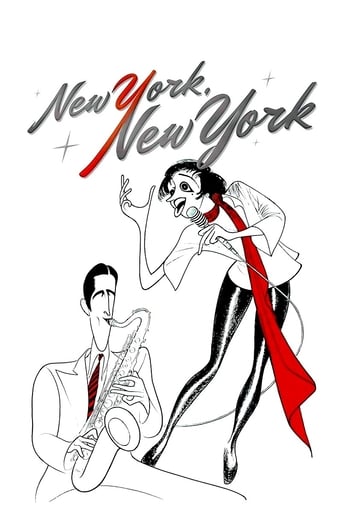










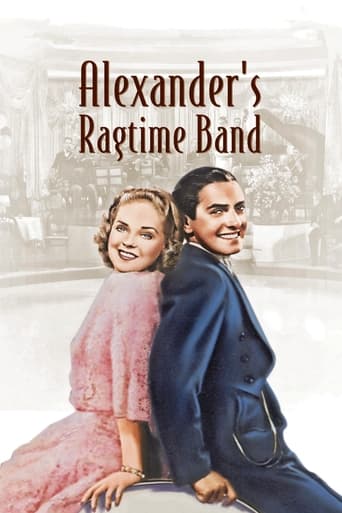
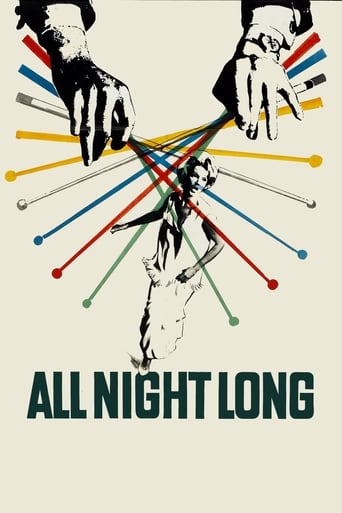









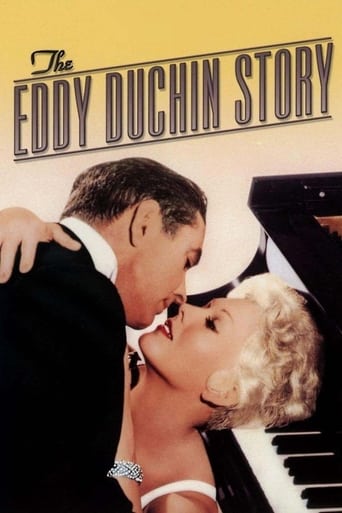
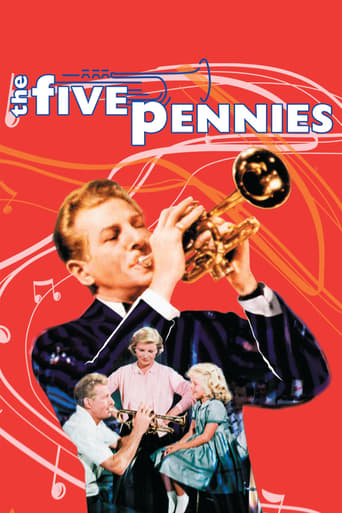
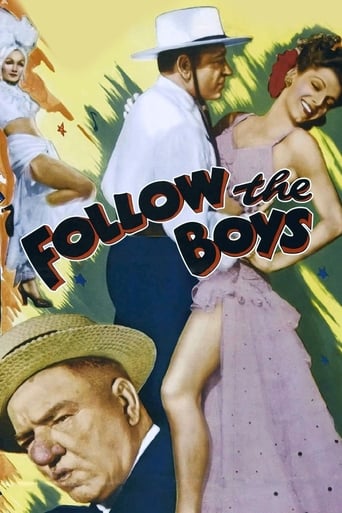



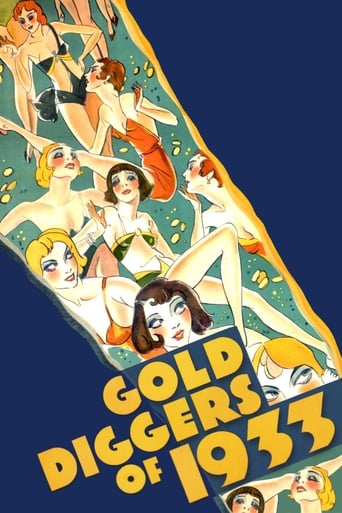
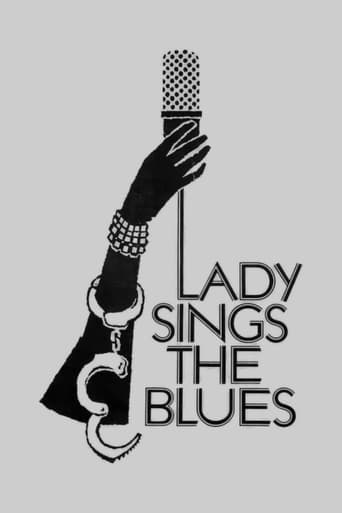






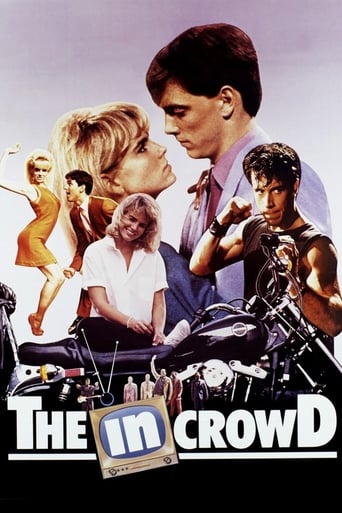


























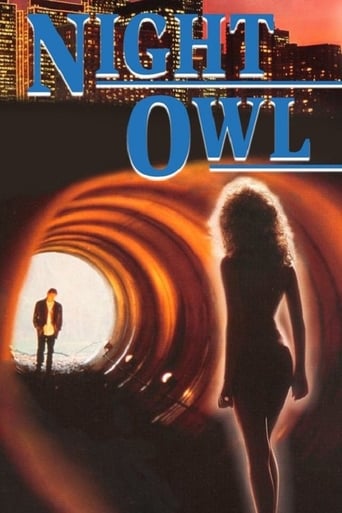






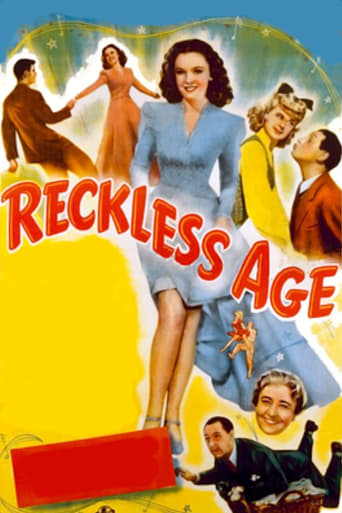

























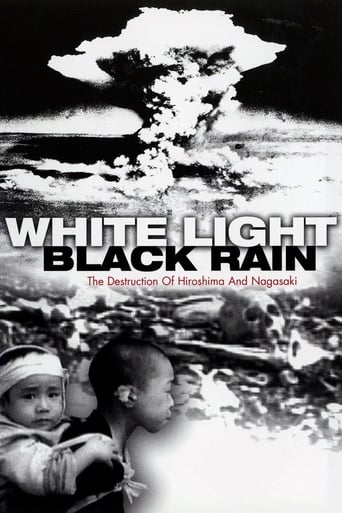
Young Man with a Horn
Legendary trumpeter Art Hazzard teaches young Rick Martin everything he knows about playing, so Rick becomes a star musician, but a troubled marriage and the desire to play pure jazz instead of commercial swing songs cause him problems.